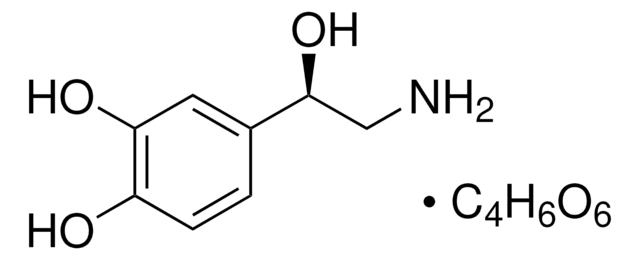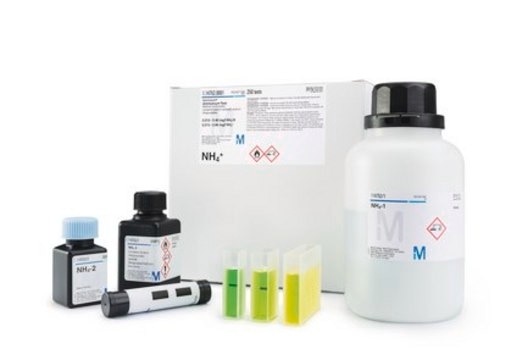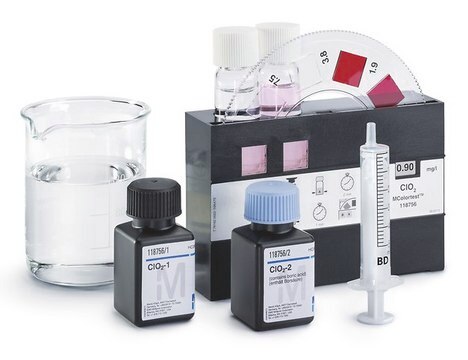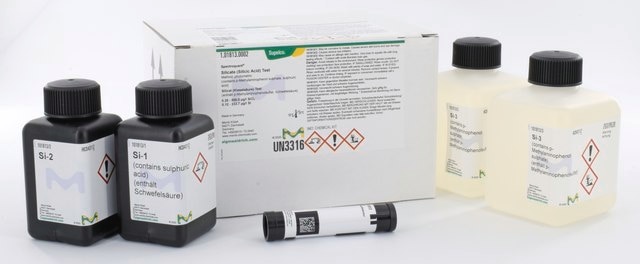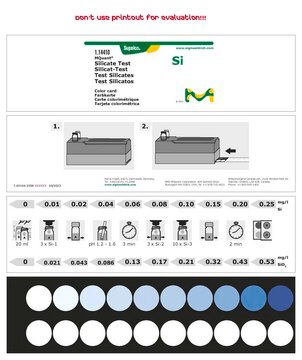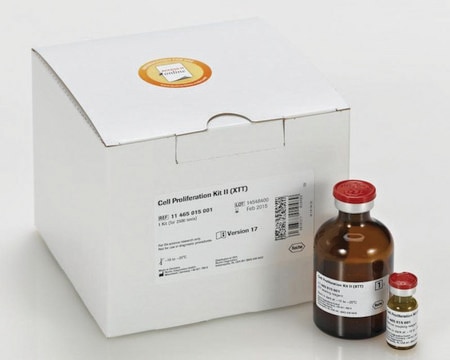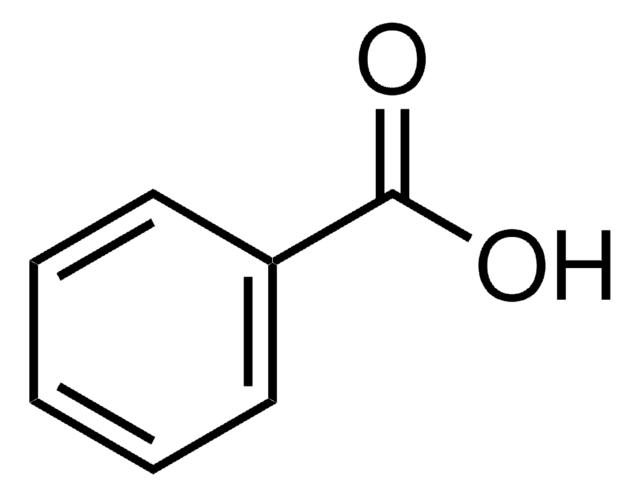1.00857
Silicate (Silicic Acid) Test
photometric, 1.1-1070 mg/L (SiO2), 0.5-500 mg/L (Si), Spectroquant®
About This Item
Recommended Products
product line
Spectroquant®
Quality Level
usage
sufficient for 100 tests
specific analyte(s)
silicate
measuring range
0.5-500 mg/L (Si)
1.1-1070 mg/L (SiO2)
technique(s)
photometry: suitable
compatibility
for use with Spectroquant® Move 100
for use with Spectroquant® Nova 60 A
for use with Spectroquant® Prove 100
for use with Spectroquant® Prove 300
for use with Spectroquant® Prove 600
detection method
photometric (Molybdosilicate)
storage temp.
15-25°C
General description
The method is analogous to APHA 4500-SiO2 C.
This Spectroquant® Silicate Reagent Test allows the accurate quantification of silicate (silicic acid) in aqueous samples.
Method applied: In sulfuric solution silicate ions react with molybdate ions to form a yellow heteropoly acid which is determined photometrically.
The Spectroquant® Reagent Test Kits contain highly stable, ready-to-use reagent mixtures to perform the analysis according to the procedure described in the accompanying instruction leaflet .
All our Cell and Reagent Test Kits are equipped with the unique Live ID (2D barcode) which allows seamless method recognition and contains essential information such as lot number, expiry date, and automatic calibration updates.
Legal Information
signalword
Danger
hcodes
Hazard Classifications
Eye Dam. 1 - Met. Corr. 1 - Skin Corr. 1A
Storage Class
8B - Non-combustible, corrosive hazardous materials
wgk_germany
WGK 1
flash_point_f
Not applicable
flash_point_c
Not applicable
Certificates of Analysis (COA)
Search for Certificates of Analysis (COA) by entering the products Lot/Batch Number. Lot and Batch Numbers can be found on a product’s label following the words ‘Lot’ or ‘Batch’.
Already Own This Product?
Find documentation for the products that you have recently purchased in the Document Library.
Protocols
Silicon (total) in drinking water - Photometric determination using the Silicon molybdenum blue method subsequent to fusion melting
Our team of scientists has experience in all areas of research including Life Science, Material Science, Chemical Synthesis, Chromatography, Analytical and many others.
Contact Technical Service